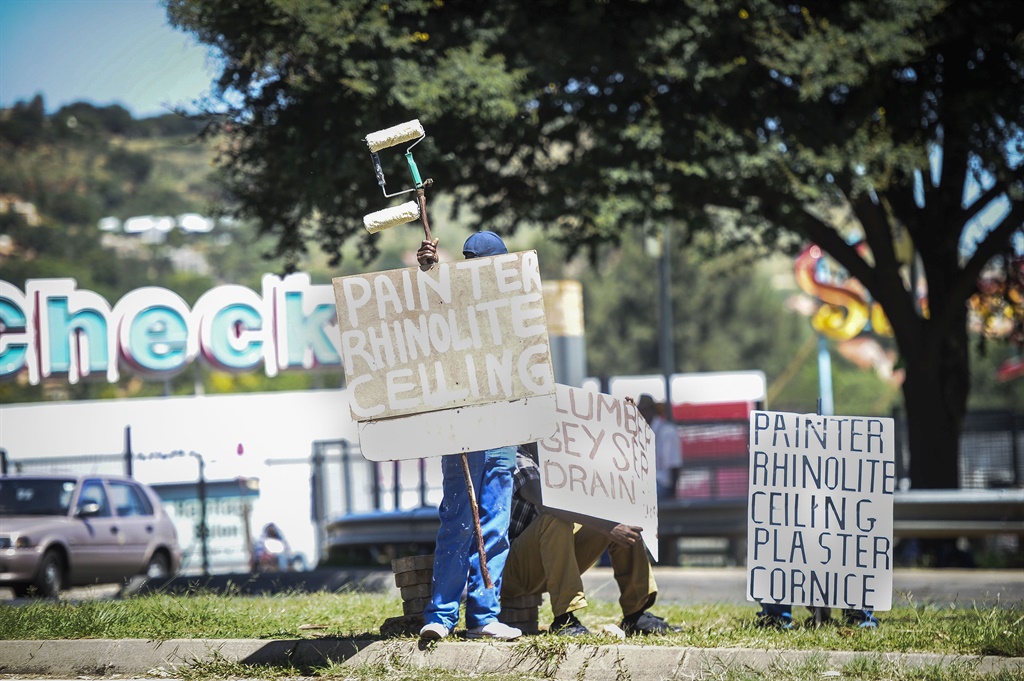
Did the EFF stick to the facts in its 2019 election manifesto? We check a selection of claims.
Claim: Close to 40% of South Africans who need jobs are unemployed, meaning that more than 9 million South Africans who need jobs and are capable of working cannot find employment.
Stats SA’s Quarterly Labour Force Survey measures unemployment in two ways – according to the narrower, official definition and according to the expanded definition.
The agency’s acting chief director for labour statistics, Malerato Mosiane, explained: “The difference between the official and expanded definition of unemployment is that the job search criterion is relaxed in the expanded definition.”
In the case of the official definition, someone has to be without work, available for work and searching for work or trying to start a business. The expanded definition does not require a person to be looking for a job – they just need to be without work and available for work.
At the time the EFF released its manifesto on February 2, the latest available Quarterly Labour Force Survey was for the third quarter of last year.
According to the report and based on the official definition of unemployment, 6.2 million people were unemployed at that time.
This means that they:
- Were between the ages of 15 and 64;
- Were not employed in the week before the survey interview; and
- Actively looked for work or tried to start a business in the four weeks before the interview, and would have been able to start work or a business in the week before the interview.
A person was also considered unemployed if they “had not actively looked for work in the past four weeks, but had a job or business to start at a definite date in the future and were available”.
A further 2.7 million were identified as discouraged work seekers. This group of people wanted to work, but did not try to find work because of a lack of jobs in their area, because they had lost hope or could not find work requiring their skills.
An additional 817 000 people without work provided reasons for failing to search for a job other than the ones contained in the definition of a discouraged work seeker. These included ill health, a disability, pregnancy, childcare duties and a lack of transport, said Mosiane.
Read the ANC manifesto claims we’ve fact-checked:
- Did only 51% of children attend school in 1994?
- No, the ANC has not provided 4.7m free houses since 1994
- 5.5m earned below minimum wage in 2017
- How much did the ANC-led government spend on infrastructure in a decade?
- Student financial aid increases from R70m to R14bn in 24 years
Capability not part of either definition
The unemployed, discouraged work seekers and those with other reasons for not searching for a job make up the expanded definition of unemployment. According to this definition, close to 9.8 million people, or 37.3%, of the labour force (26.1 million) were unemployed in the third quarter of last year.
While Mosiane noted that the EFF’s claim used the term “capable”, which was not part of the official or the expanded definition of unemployment, the numbers in the claim most closely match the expanded definition.
Academics have argued that there is little to distinguish between the two definitions in South Africa. Stats SA previously told Africa Check that the expanded definition is a more stable indicator.
EFF national communications manager Sixolise Gcilishe confirmed to Africa Check/City Press that the party had applied the expanded definition in this case.
Verdict: Correct
The EFF’s claim that more than 9 million – or close to 40% – of South Africans who need jobs are unemployed is correct. Almost 9.8 million people – or 37.7% of the labour force – were unemployed according to the expanded definition of unemployment in the third quarter of last year.
The EFF provided detailed responses on the sources of its claims but the party did not comment on our findings by the deadline.
- This package is part of a journalism partnership with Africa Check, the continent’s leading fact-checking organisation. The project aims to ensure that claims made by those in charge of state resources and of delivering essential services are factually correct. In the run-up to this year’s national and provincial elections, it is increasingly important that voters are able to make informed decisions. This series aims to provide voters with the tools to do that.




 Publications
Publications
 Partners
Partners








